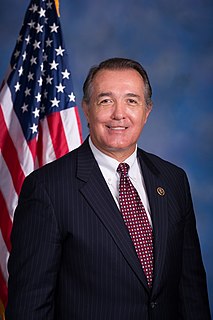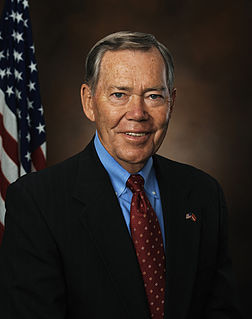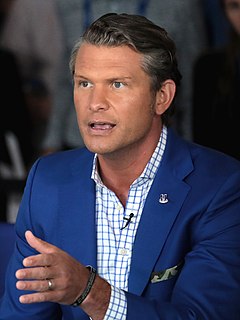A Quote by Trent Franks
Of all government expenditures, defense spending is the... most stimulative to the economy.
Quote Topics
Related Quotes
What's hurting the U.S. economy is total government spending. The deficit is an indicator that the government is spending so much money that it can't even get around to stealing all of the money that it wants to spend. But the tip of the iceberg is not what hit the Titanic - it was the 90 percent of the iceberg under water.
Government is taking 40 percent of the GDP. And that's at the state, local and federal level. President Obama has taken government spending at the federal level from 20 percent to 25 percent. Look, at some point, you cease being a free economy, and you become a government economy. And we've got to stop that.
The reality is the most important thing that can be done are these permanent changes like to the tax code, reduction of government spending. These are the things that pop up in economy and move it in the right direction, start to make it an economy that is moving because of the money in the private economy. When you think about it, when the Fed is lowering an interest rate, what it's doing is it's creating more liquidity. It's putting more money into the economy. The same thing happens when you reduce the tax except if happens from physical policy.
Conservatives and liberals are kindred spirits as far as government spending is concerned. First, let's make sure we understand what government spending is. Since government has no resources of its own, and since there's no Tooth Fairy handing Congress the funds for the programs it enacts, we are forced to recognize that government spending is no less than the confiscation of one person's property to give it to another to whom it does not belong - in effect, legalized theft.































